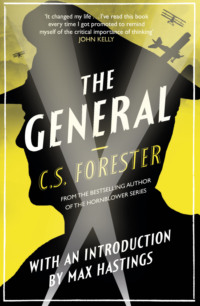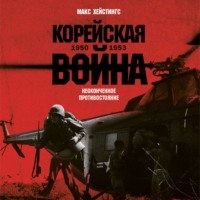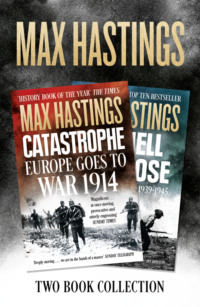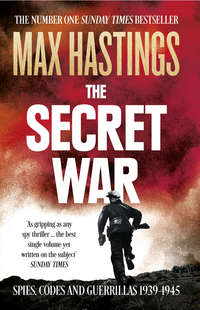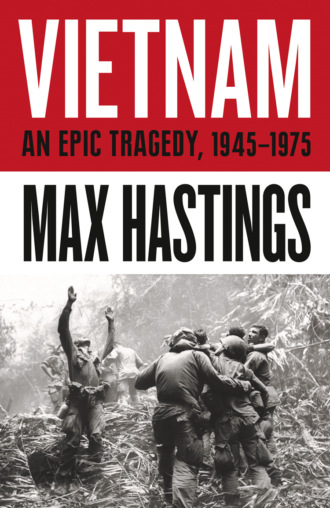
Полная версия
Vietnam: An Epic History of a Divisive War 1945-1975
Ho Chi Minh was born Nguyen Sinh Cung in a central Vietnamese village in 1890. His father had risen from being a mere concubine’s son to mandarin status, but then abandoned the court to become an itinerant teacher. Ho, like Vo Nguyen Giap, Pham Van Dong and Ngo Dinh Diem later, attended Hue’s influential Quoc Hoc high school, founded in 1896, from which he was expelled in 1908 for revolutionary activity. He cast off family ties, and after a brief period teaching in a village school, in 1911 became a stoker and galley boy aboard a French freighter. For three years he roamed the world, then spent a year in the United States, which fascinated him, before taking a job as an assistant pastry chef in London’s Carlton Hotel. He became increasingly politically active and met nationalists of many hues – Irish, Chinese, Indian. He spoke English and French fluently, together with several Chinese dialects and later Russian.
In 1919 he drafted an appeal which was delivered to US President Woodrow Wilson at the Versailles peace conference, soliciting his support for Vietnamese independence: ‘All subject peoples are filled with hope by the prospect that an era of right and justice is opening to them … in the struggle of civilization against barbarism.’ He attended the 1920 French socialist congress, at which he delivered a speech that later became famous: ‘It is impossible for me in just a few minutes to rehearse to you all the atrocities committed in Indochina by the bandits of capitalism. There are more prisons than schools … Freedom of the press and opinion does not exist for us … We don’t have the right to emigrate or travel abroad … They do their best to intoxicate us with opium and brutalize us with alcohol. They … massacre many thousands … to defend interests that are not [Vietnamese].’ Ho became a prolific pamphleteer and contributor to left-wing journals, often quoting from Lenin.
In 1924 he travelled to Moscow, meeting Russia’s new leaders and spending some months at the so-called University of Oriental Workers before moving on to Canton, where he became an interpreter for the Soviet adviser to Chiang Kai-shek. Three years later, after Chiang turned on the communists, Ho fled back to Europe. A French acquaintance described a conversation on a bridge over the Seine, during which the Vietnamese said reflectively, ‘I always thought I would become a scholar or writer, but I’ve become a professional revolutionary. I travel through many countries, but I see nothing. I’m on strict orders, and my itinerary is carefully prescribed, and you cannot deviate from the route, can you?’
‘Orders’ from whom? There are many mysteries concerning Ho’s life. He never married, and his emotional needs appear to have been fulfilled by commitment to political struggle. Who funded his global travels? Was he a paid servant of Moscow, or did he merely receive ad-hoc financial assistance from political fellow-travellers? It is unsurprising that he became a communist, because the world’s capitalists were implacably hostile to his purposes. He was less remarkable for his own writing and thinking, which were unoriginal, than for an extraordinary ability to inspire in others faith, loyalty and indeed love. A Vietnamese student wrote of a first meeting with Ho some years later in Paris: ‘He exuded an air of frailty, a sickly pallor. But this only emphasized the imperturbable dignity that enveloped him as though it was a garment. He conveyed a sense of inner strength and generosity of spirit that impacted upon me with the force of a blow.’
In 1928, Ho appeared in Bangkok, a rendezvous for exiled Indochinese nationalists. The following year he moved to Hong Kong, where he presided over a meeting of leaders of rival Vietnamese factions, held in a football stadium during a match to evade police attention. He persuaded his compatriots to unite under the banner of the Indochinese Communist Party, which in 1931 was formally recognised by the Moscow Comintern. During the years that followed, a series of revolts took place in Vietnam. The French responded with bombings of suspected insurgent villages, and guillotinings of identified leaders. Though Ho was not directly linked to the risings, he was now a wanted man, pursued through the European powers’ colonies. After a series of adventures, he escaped into China by persuading a Hong Kong hospital employee to have him declared dead. Thereafter he commuted between China and Russia, suffering chronic privations and recurrent sicknesses. A French communist agent who met him during his odyssey described Ho as ‘taut and quivering, with only one thought in his head: his country’.
Early in 1941, after an absence of three decades, he secretly returned to Vietnam, travelling on foot and by sampan, and assuming the pseudonym by which he would become known to history – Ho Chi Minh, or ‘Bringer of Light’. He took up quarters in a cave in the hills of the north, where he met young men who embraced this fifty-year-old as ‘Uncle Ho’, among them such later heroes of the revolution as Pham Van Dong and Vo Nguyen Giap. Giap at first introduced Ho to the little guerrilla group by saying, ‘Comrades, this is an old man, a native of this area, a farmer who loves the revolution.’ But they quickly realised that this was no local, and certainly no farmer. Ho drew maps of Hanoi for those who had never seen it, and advised them to dig latrines. A veteran recalled: ‘We thought to ourselves, “Who is this old man? Of all the things he could tell us, he gives advice about how to take a shit!”’ Nonetheless Ho was readily accepted as leader of the group, and indeed of the new movement, which they called the Vietnam Independence League, shortened to Vietminh. Its leaders did not disguise their own ideological commitment, but only much later did they explicitly avow communism as their only permitted creed.
Nazi mastery of western Europe drastically eroded France’s authority in its colonies, and intensified peasant suffering. In Indochina the French requisitioned to meet their own needs such basic commodities as matches, cloth, lamp oil. In the Mekong delta there was a brief 1940 communist-led rising in which several French officials were killed, army posts seized. Rice granaries were occupied and their contents distributed, bridges broken down by insurgents waving hammer-and-sickle flags. The so-called Nam Ky insurrection lasted just ten days, and only a small minority of local people participated, yet it emphasised the rage latent in the countryside.
From the summer of 1940 onwards, Tokyo exploited its regional dominance to deploy troops in Indochina, first to sever the Western supply route to China, later progressively to establish an occupation, which provoked President Franklin Roosevelt to impose his momentous July 1941 oil embargo. Although the French retained nominal authority, the Japanese thereafter exercised real power. They craved commodities to supply their domestic industries, and insisted that the Vietnamese should curtail rice-growing in favour of cotton and jute. This, together with enforced export of foodstuffs, created increasing hunger among the inhabitants of the richest rice-producing area in South-East Asia.
In 1944, a drought followed by floods unleashed a vast human tragedy. At least a million Vietnamese, one in ten of Tonkin’s population, perished in a famine as disastrous as the contemporaneous East Bengal disaster in British India. There were credible reports of cannibalism, yet no Frenchman is known to have starved. The famine remained in the memory of many northern Vietnamese as the most dreadful experience of their lives, not excluding subsequent wars. One peasant’s earliest memories of life in a village near Hanoi were of his mother scolding the children if they wasted food: ‘You wouldn’t do that if you remembered 1945.’
Another peasant described deserted hamlets and desperate people: ‘Skinny bodies in rags roamed every country road and city street. Then corpses began to appear along roadsides and in pagoda yards, church grounds, marketplaces, city parks, bus and railway stations. Groups of hungry men and women with babies in their arms and other children at their sides invaded every accessible field and garden to search for anything they thought edible: green bananas, cores and bulbs of banana trees, bamboo shoots. The people of my own village had to defend their land by force.’ Oxcarts carried away corpses, to be interred in mass graves. One day his three-year-old sister was eating a rice cake outside their house when an emaciated young man ‘who looked like a ghost in ragged clothes’ sprang forward, snatched the morsel from her hand and darted away.
In some areas charity food kitchens were established to provide gruel for the starving, and long queues gathered before them. Van Ky, a Tonkin teenager who became a famous Vietminh balladeer, said later: ‘When you opened the front door in the morning, you might see a corpse lying there. If you saw a big flock of crows, that meant a body underneath.’ It is unsurprising that such experience bred revolutionaries, including Ky himself. He was born in 1928 into a peasant family, but grew up in the unusually literate household of an uncle, from whom he learned La Fontaine’s fables and performed little plays based on them. He read such books as Victor Hugo’s Les Misérables. By the age of fifteen, Ky was distributing leaflets for the communists. He became chief of his local secret militia, serving until it was decided that he had artistic talents more useful to the Revolution than his military ones. Communist propagandists exploited music to great effect, resetting traditional folk songs to fit their own message, delivered by travelling troupes. Ky later wrote a ballad entitled ‘Hy Vong’ – ‘Hope’ – which became one of the favourite tunes of the Resistance. His experience demonstrated a notable aspect of the independence struggle: that a respect for French culture was no barrier to a determination to see France quit Vietnam.
2 THE VIETMINH MARCH
The last phase of the world war had momentous regional consequences. In March 1945 the Japanese staged a coup, deposing the French puppet regime and assuming full mastery over Vietnam. Colonialism was sustainable only as long as it appeared to subject peoples as the inevitable order, a perception changed forever in South-East Asia. Vietnamese recoiled from the new rulers’ brutalities, but were impressed by the spectacle of fellow-Asians wielding authority: some called the Japanese ‘oai’ – ‘awe-inspiring’. In July the Office of Strategic Services – US sponsor of guerrilla war – dispatched to Indochina a team of paramilitary agents led by Major Archimedes Patti, who pitched camp with Ho Chi Minh. Those callow young men, like so many of their kind both American and British in occupied countries around the world, were grateful to find friends in a hostile environment: they fell in love with the romance of their circumstances, and with their hosts. A twenty-two-year-old guerrilla told one of the OSS men with jocular humour that he should not show himself outside their camp at Tan Trao, ‘because if the Japanese catch you, they will eat you like a pig!’ When he chortled to Giap about this sally, however, he was reprimanded: ‘We are revolutionaries, and the members of this team are our allies, so we must talk to them in a cultured and civilised way.’
Washington’s Indochina policy-making was fumbling and erratic. The allied warlords were preoccupied with completing the defeat of Germany and Japan. From Yugoslavia to Burma, however, and from Greece to Vietnam, local nationalists focused their ambitions almost exclusively upon securing political control, once Axis forces were gone. Colonial subjects saw no merit in securing liberation from fascist suzerainty, only to bend once more beneath the yoke of their former masters, whether French, British or Dutch. The OSS team with Ho became fascinated by his personality, and allowed themselves to suppose that the arms with which they supplied him were being used to harry the Japanese. In truth, the Vietminh staged a few small showpiece actions against the occupiers, but focused upon building their organisation and husbanding weapons to fight the French. Ho’s appointed military chief was Giap. This former teacher and avid student of history had no military training whatsoever when, on 22 December 1944, he formed the so-called Vietnamese Liberation Army Propaganda Unit, just thirty-four strong, three of them women. On 15 May 1945 this body was absorbed into an embryo ‘Liberation Army’.
Modern Hanoi histories record with glee the manner in which communist cadres exploited Western arms and training to pursue their own purposes. In 1943, following the Allied occupation of French Madagascar, the British secret warfare organisation Special Operations Executive recruited seven Vietnamese prisoners whom its officers found languishing in a Vichy prison. These men assured the liberators of their eagerness to return home to fight, without mentioning that they numbered the French among the fascist foes. A later Vietminh account asserted: ‘The seven intelligence men appeared to be Allied agents, but their hearts and minds belonged to communism.’ After the usual training in the black arts they were parachuted back into Vietnam, fearing rejection by the Party for having accepted service with SOE. Instead they received a warm welcome, and were promptly ordered to signal Calcutta for more arms, wirelesses and medical supplies.
The suddenness with which the war ended in August 1945 enabled Ho to seize the initiative, to fill a power vacuum that yawned widest in the north. His emissaries persuaded Bao Dai, Vietnam’s whimsical and indolent young puppet emperor, to write to the Paris government asserting that the only way to safeguard France’s position was ‘by frank and open recognition of the independence of Vietnam’. Gen. Charles de Gaulle, interim master in Paris, declined to respond to this missive, but was obliged grudgingly to notice that before abdicating on 25 August Bao Dai had invited Ho to form a government. The Vietminh leader marched his followers into Hanoi, Tonkin’s capital, and on 2 September 1945 proclaimed before a vast and ecstatic crowd in the city’s Ba Dinh square the establishment of a Vietnamese state. He declared: ‘The French have fled, the Japanese have capitulated, Emperor Bao Dai has abdicated, our people have broken the fetters which for over a century have tied us down.’
The news was broadcast throughout the country, and a schoolboy who lived south of Hue later recalled: ‘Our teachers were so happy. They told us we must go out and celebrate independence. They said that when we are old men … we must remember this as a day of celebration.’ Ho in his speech quoted from the US Declaration of Independence, and secured a propaganda coup when the OSS group allowed itself to be photographed saluting the Vietminh flag-raising ceremony. By chance, at that moment a flight of USAAF P-38 fighters roared overhead: in the eyes of thousands of beholders, the US thus laid its blessing upon the new government.
In truth, of course, a cluster of idealistic young State Department and OSS men merely exploited Washington’s lack of a policy to make their own weather. Patti, upon whose considerable vanity Ho played like a lute, described the Vietminh leader as ‘a gentle soul’, and another American said, ‘We felt that he was first a nationalist, second a communist.’ The major admitted long afterwards, ‘I perhaps was somewhat naïve with respect to the intent and purpose in using the words [of the 1776 Declaration] … But I felt very strongly that the Vietnamese had a legitimate gripe or claim, to really govern themselves. After all what was [the Second World War] all about?’
Charismatic leadership is a determinant in most revolutionary struggles – consider India’s Gandhi and Nehru, Kenya’s Kenyatta, Cuba’s Castro. Ho Chi Minh established a legitimacy that proved impregnable even when the shortcomings and indeed barbarities of his regime became apparent, because in 1945 he seized sole ownership of Vietnam’s independence movement. Sixteen-year-old Nguyen Cao Ky wrote later that in those days in Hanoi ‘the one name on my lips, as well as those of nearly everyone of my generation, was Ho Chi Minh’. Many households began to display his portrait: in the words of another young Vietnamese, ‘We were hungry for a hero to worship.’ The French had made no attempt to foster an indigenous political class with any sympathy for the aspirations of its own people: rich and educated Vietnamese existed in a world entirely alien from that of the peasantry. While Ho and his intimates knew that few would endorse an avowed communist prospectus, he was able to unite a great swathe of his people behind expulsion of the French. In the years that followed, he achieved a mystic stature unrivalled by any fellow-countryman.
During the early years of the independence struggle, in ‘liberated zones’ land was compulsorily transferred from landlord to peasant ownership. Ho and his associates did not reveal that they viewed redistribution as a mere transit stop, pending collectivisation. Political cadres painted a glowing picture of Russia as an earthly paradise, which Vietnam should aspire to emulate. Ho himself exuded an aura of dignity and wisdom that impressed all those who met him, and proved a brilliant political manipulator. Beneath a veneer of benignity, he possessed the quality indispensable to all revolutionaries: absolute ruthlessness about the human cost of the courses he deemed appropriate for his people. It seems a fair test of any political movement to enquire not whether it is capitalist, communist or fascist, but whether it is fundamentally humane. A remark attributed to Giap answered this question for the Vietminh: ‘Every minute, hundreds of thousands of people die upon this earth. The life or death of a hundred, a thousand, tens of thousands of human beings, even our compatriots, means little.’
Ho Chi Minh’s conduct reflected the same conviction, though he was too astute a politician ever to be recorded by Westerners as expressing it. There has been much debate about whether he was a ‘real’ communist, or instead merely a nationalist driven by political necessity to embrace Lenin’s creed. Evidence seems overwhelming in favour of the former view. He was never the Titoist some of his Western apologists suggested: he repeatedly condemned Yugoslavia’s 1948 severance from the Soviet bloc. He avowed an unflagging admiration for Stalin, though the Russian leader never reciprocated either by trusting the Vietminh leader or by providing substantial aid to him.
It seems narrowly possible that Vietnam’s subjection to communism could have been averted if France in 1945 had announced its intention to quit the country, and embarked upon a crash transition process to identify credible indigenous leaders and prepare them to govern, as did the British before quitting Malaya. Instead, however, the French chose to draft a long suicide note, declaring their ironclad opposition to independence. The colonialists’ intransigence conceded to Ho Chi Minh the moral high ground in the struggle that now began to unfold.
De Gaulle bore chief responsibility for this blunder. In March 1945 he overrode the views of Pierre Messmer, his liaison officer in the Far East, who argued the necessity of parleying with the Vietminh. Instead, the haughty general committed the restoration of French authority to the intractable colonialist Admiral Thierry d’Argenlieu, who became high commissioner in Saigon. In some parts of the world, Africa notable among them, a dearth of credible nationalist movements enabled European empires to cling to their power and privileges for a further generation. In Vietnam, however, as elsewhere in Asia, foreign hegemony became unsustainable once local leaders found voices that could not be silenced, together with audiences to heed them. This was the reality that France spent the ensuing decade attempting to deny.
On 12 September 1945, less than a month after the Vietminh appropriated authority in Hanoi, British and Indian troops landed in Saigon. They freed the embittered French colonialists from their prisons, and dismissed the Vietminh aspirants to power amid messy and bloody skirmishing, in which some Japanese were deployed alongside the allies. The British commander, Maj. Gen. Douglas Gracey, asserted: ‘The question of the government of Indochina is exclusively French.’ One of his officers described a first encounter with the Vietminh: ‘They came to see me and said “welcome” and that sort of thing. It was an unpleasant situation and I promptly kicked them out. They were obviously communists.’ Gracey is sometimes criticised for using his troops to suppress Ho’s people. Yet he was merely a relatively junior soldier, no Caesar nor even Mountbatten, mandated to emulate many of his peers around the world in those days: use bayonets to restore the pre-war order.
At Washington’s behest 150,000 Chinese troops, Chiang Kai-shek’s men, descended upon northern Vietnam to assume a share of the allied occupation role. The Vietnamese dubbed them tau phu – the ‘swollen Chinese’ – because they all seemed to have bulging feet, perhaps from beriberi. The newcomers behaved more like locusts than warriors, stripping the countryside of everything edible or portable. They interfered little with Ho’s energetic extension of his political authority, and obligingly sold weapons to the Vietminh. Early in October 1945 the first French troops appeared in Saigon, but more than a year elapsed thereafter – a delay priceless for the communists and fatal to the imperialists – before they reasserted control in the north.
At the age of sixteen, student Pham Phu Bang was an enthusiastic revolutionary who saw the Vietminh exclusively as an independence movement: ‘I knew nothing about communism.’ When the Japanese swept over the country, at first he found it thrilling to see fellow-Asians humiliate the French colonial power – ‘like two great water buffaloes locking horns’. After Japan’s collapse Bang started his own revolutionary career, stealing weapons from careless Chinese soldiers, writing posters and banners proclaiming ‘Up with Ho Chi Minh’, ‘Long Live Free Vietnam’. One day he joined a train taking rice north to famine-stricken areas, which became trapped at a bridge wrecked by allied bombing. Its Vietminh escort enlisted local villagers to hump sacks across the river, but soon found the train besieged by a throng of starving people. Young Bang was accosted by a skeletal figure who had been given a can of rice for himself, but pleaded desperately for one more for his child. ‘We argued a lot among ourselves about who was to blame for these terrible things – the Japanese who ruled; the French who took as much food as they wanted to feed themselves; or the Americans who had bombed the railways. We decided it was all three. We asked each other: why did our small, fragile country have so many enemies?’
In the course of 1945–46 the Vietminh took over the non-communist Vanguard Youth movement and suppressed other opposition groups in the north. Many of the rival leaders were jailed, and in the countryside some thousands of alleged ‘enemies of the people’ were liquidated. The Vietminh hustled to announce its own triumph in a 4 January 1946 national election, as assuredly rigged as was every other ballot in Indochina through the decades that followed. For a brief season while the Chinese army and allied representatives were conspicuous in the north, a semblance of free speech was tolerated. By mid-June, however, most of Chiang’s men were gone, and purges resumed.
Ho’s people moved swiftly and effectively to secure control of rural areas, especially in the remotenesses towards the Chinese border. In the Mekong delta, by contrast, early in 1946 the French reasserted themselves, so that insurgent structures had to evolve secretly, alongside the colonial administration. Among Vietminh returnees from imprisonment was Le Duan, who two decades later would become ruler of his country. As the French expelled the Vietminh from urban areas, he was among those who established himself in the delta countryside, where guerrillas began to fight. And the colonial power fought back.
France’s adoption of this doomed course derived in significant measure from its humiliation in the Second World War. A similar disaster was averted in India, probably only because British voters at their 1945 election displayed the wisdom to endorse a socialist government, which made the historic decision to quit the subcontinent and Burma. By contrast, in Paris in the summer of 1945 a black delegate from Guyana, Gaston Monnerville, asserted: ‘without the Empire, France today would be no more than a liberated country … Thanks to her Empire, France is a victorious country.’ Successive revolving-door governments of the Fourth Republic proved feeble in everything save a willingness to deploy force in France’s overseas possessions, with a ruthlessness seldom matched by the Soviets. Following a 1945 Muslim revolt in Algeria in which a hundred Europeans were killed, an estimated twenty-five thousand people were slaughtered by French troops. After a March 1947 rebellion in Madagascar, where thirty-seven thousand colons lorded it over 4.2 million black subjects, the army killed ninety thousand people. Only in the enervating climate of a world that had exhausted its stock of moral outrage could the creation of such mountains of corpses by a European power have passed with so little remark. Algeria and Madagascar provide important context for the matching bloodshed that descended upon Indochina.


